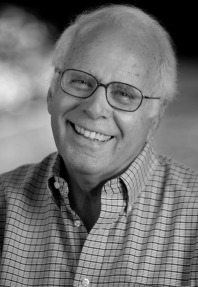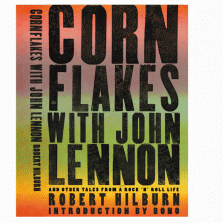ELTON JOHN AND LEON RUSSELL’S “THE UNION” (Decca/Rocket)
√ Bob Certified
This unexpected teaming of these piano men has a lot more going for it than good karma, though the back story is heartwarming. Recalling how much Russell’s music influenced him 40 years ago, John phoned his hero and suggested they make an album together. Considering Russell had been toiling in relative obscurity for decades, it was an especially sweet, thoughtful gesture. Rather than take the easy way out by replaying some of their old hits, John and Russell concentrated on new songs. They also had two great allies—tasteful, imaginative T Bone Burnett to produce the album and longtime songwriting partner Bernie Taupin to write lyrics for most of the 14 tunes. In such standouts as the evocative “Eight Hundred Dollar Shoes” and the potential standard “When Love Is Dying,” John and Taupin reflect the innocence and craft of their 1970s work. But things also work well when John and Russell team up as writers on one tune and Taupin and Russell join forces on another (the gem “I Should Have Sent Roses”). John even lets Russell have the spotlight to himself on the closing “In the Hands of Angels,” and the bearded wonder from Oklahoma comes through marvelously. Russell once stood at the very center of rock ‘n’ roll, whether as ringmaster on the “Mad Dogs and Englishmen” tour or on his own albums. “The Union” puts the spotlight back on him. But the album, too, reminds us that Elton is more than a flashy superstar. He and Taupin are superb pop-rock forces.
ROBERT PLANT’S “BAND OF JOY” (Rounder)
No magic this time.
The album opens with more of the rootsy, haunting, country-blues feel that highlighted Plant’s spectacular “Raising Sand,” but Plant didn’t have two key people with him in this studio this time: producer T Bone Burnett and vocal partner Alison Krauss. Plant c0-produced the album with guitarist-songwriter Buddy Miller and enlisted the services of vocalist Patty Griffin, but the difference is enormous. “Band of Joy” is pleasing, but it lacks the musical risks and bold vision that made “Raising Sand” one of the highlights of the decade. Everything here stays too much within Plant’s comfortable musical boundaries.
BOB DYLAN’S “THE BOOTLEG SERIES VOLUME 9—THE WITMARK DEMOS: 1962-1964” (Columbia)
√ Bob Certified
Dylan was 2o when he started recording these demo versions of his early songs in January of 1962. By the time he recorded the last of the 47 tunes in 1964, rock ‘n’ roll (and pop culture) would never be the same. It’s chilling to play the two discs and imagine yourself sitting in the studio with Dylan, hearing him (accompanied only by his acoustic guitar, harmonica and sometimes piano) move from one creative breakthrough to another—from “Blowin’ in the Wind” to “A Hard Rain’s A-Gonna Fall” and “Tomorrow Is a Long Time,”
“Masters of War” and “Don’t Think Twice, It’s All Right,” “Girl From the North Country” and “Mr. Tambourine Man.” Dare we say, priceless?
RAY CHARLES’ “THE UNDISCOVERED MASTERS—RARE GENIUS” (Concord)
Modest offerings
The main interest in this collection of previously unreleased recordings is a track in which the soul music great backs Johnny Cash vocally on a version of Kris Kristofferson’s “Why Me Lord?” The duet was recorded in 1981 for a Cash album, but wasn’t included on the eventual release. The remaining nine selections come from demos or previously released material dating back to the 1970s. Some of the tunes are familiar, including the energetic “Wheel of Fortune,” a hit for Kay Starr in the 1950s, and the gentle folk-country “A Little Bitty Tear,” a hit for Burl Ives in the 1960s. But little has the feel of classic Ray Charles.
√ Bob Certified
This unexpected teaming of these piano men has a lot more going for it than good karma, though the back story is heartwarming. Recalling how much Russell’s music influenced him 40 years ago, John phoned his hero and suggested they make an album together. Considering Russell had been toiling in relative obscurity for decades, it was an especially sweet, thoughtful gesture. Rather than take the easy way out by replaying some of their old hits, John and Russell concentrated on new songs. They also had two great allies—tasteful, imaginative T Bone Burnett to produce the album and longtime songwriting partner Bernie Taupin to write lyrics for most of the 14 tunes. In such standouts as the evocative “Eight Hundred Dollar Shoes” and the potential standard “When Love Is Dying,” John and Taupin reflect the innocence and craft of their 1970s work. But things also work well when John and Russell team up as writers on one tune and Taupin and Russell join forces on another (the gem “I Should Have Sent Roses”). John even lets Russell have the spotlight to himself on the closing “In the Hands of Angels,” and the bearded wonder from Oklahoma comes through marvelously. Russell once stood at the very center of rock ‘n’ roll, whether as ringmaster on the “Mad Dogs and Englishmen” tour or on his own albums. “The Union” puts the spotlight back on him. But the album, too, reminds us that Elton is more than a flashy superstar. He and Taupin are superb pop-rock forces.
ROBERT PLANT’S “BAND OF JOY” (Rounder)
No magic this time.
The album opens with more of the rootsy, haunting, country-blues feel that highlighted Plant’s spectacular “Raising Sand,” but Plant didn’t have two key people with him in this studio this time: producer T Bone Burnett and vocal partner Alison Krauss. Plant c0-produced the album with guitarist-songwriter Buddy Miller and enlisted the services of vocalist Patty Griffin, but the difference is enormous. “Band of Joy” is pleasing, but it lacks the musical risks and bold vision that made “Raising Sand” one of the highlights of the decade. Everything here stays too much within Plant’s comfortable musical boundaries.
BOB DYLAN’S “THE BOOTLEG SERIES VOLUME 9—THE WITMARK DEMOS: 1962-1964” (Columbia)
√ Bob Certified
Dylan was 2o when he started recording these demo versions of his early songs in January of 1962. By the time he recorded the last of the 47 tunes in 1964, rock ‘n’ roll (and pop culture) would never be the same. It’s chilling to play the two discs and imagine yourself sitting in the studio with Dylan, hearing him (accompanied only by his acoustic guitar, harmonica and sometimes piano) move from one creative breakthrough to another—from “Blowin’ in the Wind” to “A Hard Rain’s A-Gonna Fall” and “Tomorrow Is a Long Time,”
“Masters of War” and “Don’t Think Twice, It’s All Right,” “Girl From the North Country” and “Mr. Tambourine Man.” Dare we say, priceless?
RAY CHARLES’ “THE UNDISCOVERED MASTERS—RARE GENIUS” (Concord)
Modest offerings
The main interest in this collection of previously unreleased recordings is a track in which the soul music great backs Johnny Cash vocally on a version of Kris Kristofferson’s “Why Me Lord?” The duet was recorded in 1981 for a Cash album, but wasn’t included on the eventual release. The remaining nine selections come from demos or previously released material dating back to the 1970s. Some of the tunes are familiar, including the energetic “Wheel of Fortune,” a hit for Kay Starr in the 1950s, and the gentle folk-country “A Little Bitty Tear,” a hit for Burl Ives in the 1960s. But little has the feel of classic Ray Charles.


 RSS Feed
RSS Feed


